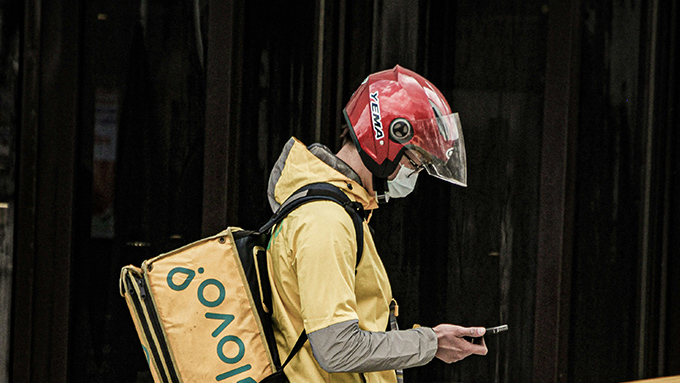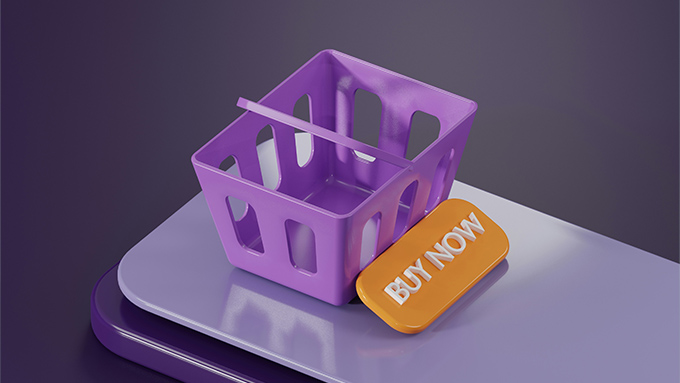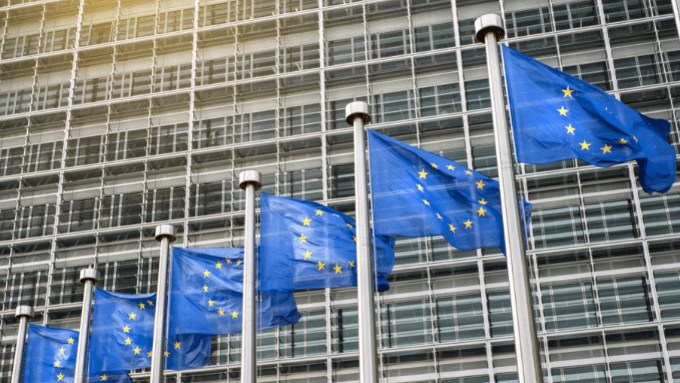Competition Board’s Guideline on the Examination of Digital Data during On-Site Inspections
Introduction
Article 15 of Law on the Protection of Competition numbered 4054 (“Law”) authorizes the Competition Authority (“Authority”) to conduct on-site inspections at the undertakings’ premises if deemed necessary in carrying out the duties assigned to it by the Law. Pursuant to the relevant Article, competition experts employed by the Competition Board (“Board”) are authorized to:
- Examine the books, all types of data and documents of undertakings and associations of undertakings kept on physical or electronic media and in information systems, and make copies and take physical samples thereof;
- Request written or oral statement on particular issues; and
- Perform on-site examinations of any assets of the undertakings.
Based on the aforementioned provision, the Authority frequently exercises its right to make on-site inspections in numerous cases, particularly in investigations and preliminary investigations, so much so that on-site inspections often cause concern for undertakings, and there are usually discussions about which documents or devices experts have the authority to inspect during on-site inspections. Although the relevant provision grants the experts the authority to examine the data and documents retained in all kinds of information systems of the enterprise, especially the limits of this authority, are sometimes discussed. In practice, competition experts, especially recently, have been examining mobile phones (Whatsapp, etc.) in addition to the computers of the undertakings’ officials, which may cause concern for the undertaking executives.
Considering these concerns observed, in practice, the Board has published a Guideline on the Examination of Digital Data during On-Site Examinations (“Guideline”) in its decision dated 08.10.2020, in order to solidify the limits of on-site inspection authority.
The Guideline
The Guideline sets a general framework regarding the inspection and storage of undertakings’ data and documents in electronic media and information systems during on-site inspections. Within this framework, the procedures and principles set by the Guideline regarding investigation of digital data during on-site inspections are summarized, below:
Authority to Inspect
Authority experts are authorized to inspect all kinds of servers, desktops, computers/laptops, information systems, such as portable devices, and other storage tools, such as CD, DVD, USB, external hard disks, back-up records and cloud services that contain the undertaking’s digital data.
Thus, it is clear that experts are not limited to computer analysis, but may also examine servers, and all other archives and backups of the undertakings. Moreover, it is clearly stated that even cloud services will be the subject of investigation.
It is already known that competition experts work with IT specialists during on-site examinations. IT experts scan the servers of the undertakings, and it is possible to recover even deleted documents. Sometimes, there are objections by the executives of the undertakings regarding the access of IT specialists to the servers. It is observed, in particular, that international companies oppose the experts’ requests to access their data stored abroad and, particularly, cloud storage services. The Guideline reinforces that experts conducting on-site inspections are authorized to review all of these resources.
In this context, in accordance with the Guideline, company officials are under the obligation to provide information about the software and hardware related to the information technologies used, provide system administrator privileges, provide remote access rights to the e-mail accounts of the employees of the undertaking, isolate the computers and servers from the network environment, limit the access of the users to the corporate accounts, and to restore data, if needed.
Mobile Devices
Portable communication devices, such as mobile phones and tablets, shall be examined to determine whether or not they contain digital data of the undertaking. Portable communication devices that are determined to be completely specific to personal use cannot be inspected. On the other hand, portable communication devices that are found to contain the undertaking’s data shall be inspected at the place of business of the undertaking through digital forensic means.
In other words, the Guideline makes it clear that experts are authorized to inspect mobile phones; company phones of the undertaking officials will be subject to examination, while personal phones may be reviewed until it is understood that they are completely specific to private use. In this sense, it is possible to examine the correspondences, not only on company phones, but also on personal phones, and those found to be related to the activities of the undertaking may be taken as evidence within the scope of the case.
Procedure for Obtaining Data
If deemed necessary by the competition experts during the inspection, the digital data may be partially or completely copied to separate data storages using digital forensic means. The ‘hash’ values shall be calculated for both the copies obtained via the digital forensic means used, and the original version, to ensure the copied data is exactly the same as the original. The copies shall then be transferred to the computer assigned by the Authority, which are equipped with digital forensic software. The copied data will be indexed and inspected by the competition experts. At the end of the inspection, the digital data obtained shall be copied to two separate data storages, and one of the copies shall be provided to the undertaking. When the inspection is finalized, an on-site inspection report shall be prepared, which shall include the ‘hash’ values of the relevant digital data, such as an annex, and these will be signed by the competition experts and the undertaking’s representatives.
The method in question is the method that has been used in practice for years. On the other hand, the legitimacy of this method has been demonstrated once again in the Guideline.
Continuing Inspections
As a rule, inspections shall be concluded at the place of business of the undertaking. However, if deemed necessary, the inspection may be carried out at the Authority’s digital forensics laboratory. In any event, the analysis of digital data obtained from mobile phones is completed at the undertaking’s premises. The digital data to be examined in the headquarters of the Authority are transferred to three separate data storages after the hash values are calculated and compared as equivalent copies. One of the copies is left to the undertaking and the other two copies are put in an envelope and sealed by the competition experts, and placed under physical security. The undertaking concerned is invited in writing by the Authority to have a representative available at the time the sealed envelope is opened, and during the examination that will continue in the Authority’s forensic informatics laboratory. If deemed necessary by the Board, with a decision to be taken, the sealed envelope in question may be returned to the undertaking without being opened.
With this regulation, it is also possible for the data received during on-site inspections to be analyzed at the headquarters of the Authority, with the exception of mobile devices. This method has not been observed before in practice; however, it is likely to appear in future on-site investigations given that it is now included in the Guideline. It should be noted that this method is also used by the Commission in the European Union.
Trade Secrets and Attorney-Client Privilege
In the event that the digital data obtained throughout the inspection contains trade secrets, “The Communiqué on the Regulation of the Right to Access the File and Protection of Trade Secrets” will be utilized. This is the current practice, as well.
Finally, data obtained during on-site inspections benefits from protection under the principle of attorney-client privilege. Accordingly, correspondence between the undertaking and an independent lawyer who does not have an employee-employer relationship with the undertaking, for the purpose of using the client's right to defense, is deemed to belong to the professional relationship, and benefits from protection within the scope of the lawyer-client confidentiality principle. However, correspondence on matters that are not directly related to the exercise of the right of defense, such as assisting with an antitrust violation or concealing an ongoing or future violation, cannot benefit from this protection. With this implementation of the Guidelines, the elements determined in the previous decisions of the Board have been reinforced.
Conclusion
With the Guideline, the authority of the experts and the limits of the examinations in the on-site inspections carried out by the Authority are clearly determined. It should be noted that the rules stipulated in the Guideline are already encountered in practice and are generally accepted. On the other hand, with the publication of the Guideline, this issue has been officially clarified.
It is particularly noteworthy that the data stored in mobile phones and cloud services are also considered to be within the scope of examination. In addition, the method of remote inspection introduced with the Guideline will add a new dimension to the on-site inspection procedure. How often and how this method will be applied will be observed over time.
All rights of this article are reserved. This article may not be used, reproduced, copied, published, distributed, or otherwise disseminated without quotation or Erdem & Erdem Law Firm's written consent. Any content created without citing the resource or Erdem & Erdem Law Firm’s written consent is regularly tracked, and legal action will be taken in case of violation.
Other Contents

The U.S. District Court for the District of Columbia (“Court”) issued its memorandum opinion (Memorandum Opinion) on November 18, 2025, in the antitrust case (“Case”) between the Federal Trade Commission (“FTC”) and Meta Platforms Inc. (“Meta”). The FTC alleges that Meta monopolized the market…

No-poach agreements, which have become one of the most prominent concepts in global competition law in recent years, are defined in the Glossary of Competition Terms as “agreements, whether direct or indirect, whereby one undertaking agrees not to make job offers to, or hire, the employees of another...

The Competition Board (“Board”) has broad powers to request information from undertakings. The legal basis for this authority is provided by Article 14 of Law No. 4054 on the Protection of Competition (“Law No. 4054”). Under this provision, the Board may request any information it deems necessary from public...

Competition authorities around the world have increasingly focused on labor market infringements under competition law, issuing new regulations and guidance recently. Notable examples include the U.S. Department of Justice and Federal Trade Commission’s joint guidance, the Japanese Fair Trade Commission’s...

Chapter 8 of the General Data Protection Regulation (“GDPR”) sets out the legal remedies available to data subjects in the event of a breach of their rights under the GDPR. Accordingly, each data subject has a right to lodge a complaint with the supervisory authority of the Member State in which they reside, work...

Mergers and acquisitions play a critical role in shaping the competitive structure of the market. Although such transactions can lead to positive outcomes such as the provision of products and services at lower prices, the development of new products and technologies, and improvements in quality, they may also...

Technology and the opportunities it brings undoubtedly play a key role in strengthening the competitiveness of market players. In this context, pricing algorithms that enable undertakings to monitor publicly available prices and optimize their own pricing strategies have become widely used, especially by digital platforms...

The Regulation on Fines to Apply in Cases of Agreements, Concerted Practices and Decisions Restricting Competition, and Abuse of Dominant Position (“Former Regulation on Fines”), which entered into force upon its publication in the Official Gazette dated February 15, 2009 and numbered 27142, was...

In the past years, the Turkish Competition Board (“Board”) has closely monitored the activities of undertakings operating in the retail sector. As a result of the Board’s record of administrative fines, horizontal type of violations in the retail sector have been highly publicized. Vertical violations such as resale price...

In recent years, numerous automobile manufacturers have announced their goals to reduce carbon emissions, with many brands setting net-zero carbon targets spanning from production processes to the lifecycle of their vehicles. While ongoing debates persist regarding the significantly higher carbon footprint of...

Under Article 15 of Law No. 4054 on the Protection of Competition (“Law No. 4054”), the Competition Board (“Board”) may conduct on-site inspections at the undertakings’ premises when it deems necessary in fulfilling the duties assigned to it. During the on-site inspection, the Board is authorized to examine all...

Agreements and information exchanges between undertakings in labor markets have recently been examined in various preliminary investigations and investigations initiated by the Turkish Competition Authority (“Authority”). Following the investigations in which some undertakings were subject to...

The Turkish Competition Board’s (Board) decision regarding the acquisition of the international road transport business line of Ekol Lojistik AŞ (Ekol) by DFDS A/S (DFDS) has been one of the most prominent transactions on the competition law agenda recently...

The Competition Board (“Board”) has broad powers to request information from undertakings. The Board’s authority to request information arises from Article 14 of the Law No. 4054 on the Protection of Competition (“Law No. 4054”). Under the relevant provision, the Board may request any information it deems...

Doğuş Otomotiv Servis ve Ticaret A.Ş. (Doğuş) applied to the Turkish Competition Authority for an exemption for the practice of recommending basic wages to be applied to sales and after-sales service employees of its authorized dealers and distributors...

Access to Instagram was blocked ex officio by the Information and Communication Technologies Authority (ICTA) as of 2.08.2024. Under Article 8 of Law No. 5651 on the Regulation of Publications on the Internet and Combating Crimes Committed Through These Publications, ICTA can issue an ex officio access...

It is well known that agreements between employer undertakings with regards to their employees, such as wage-fixing and non-poaching agreements, along with competitively sensitive information exchanges have been under the scrutiny of competition authorities all over the world, including the Turkish Competition...

Automotive is one of the sectors in which the world’s most significant investments are made. The Competition Board (“Board”) has been closely interested in the automotive sector over the years and has conducted various examinations and studies in this field...

Competition authorities around the world continue unabated to investigate competition concerns arising from data collection and processing activities of digital platforms and impose severe sanctions as a result...





The startup ecosystem in Turkey has experienced notable growth in recent years. In the last quarter of 2023, 81 startups secured a combined investment of around 60 million dollars. While the number of investments remained consistent when comparing the third quarter periods of 2022-2023, there was a decrease...

Hub and Spoke cartel is a type of violation that is not clearly defined and regulated under Law No. 4054 on the Protection of Competition (“Law No. 4054”). Decisional practices of foreign competition authorities, particularly the UK Competition and Markets Authority’s decisions (“CMA”), are instructive concerning...

The Competition Board ("Board") made an addition to its line of decisions on resale price maintenance with its decision on Sunny Elektronik Sanayi ve Ticaret A.Ş. ("Sunny") . In its decision, the Board thoroughly examined the allegations regarding Sunny's involvement in maintaining resale prices and restricting...

It is observed that the Competition Authority (“Authority”) has recently scrutinized various industries such as fast-moving consumer goods, labor market, pharmaceuticals, and cement. When the reasoned decisions of the Competition Board (“Board”) published in October are examined, it can be seen that the...

Jules Verne says, “Everything on earth has a limited lifespan, nothing that will exist forever can be created by human hands”. Perhaps change is the only constant concept in all our lives. Despite two major world wars and countless periods of crisis, humanity has been undergoing a great change and...

At the meeting of the Fédération Internationale de Football Association (“FIFA”) held on 16 December 2022, the FIFA Council approved the FIFA Football Agents Regulations (“FFAR”). In the FFAR, various amendments have been made, such as the introduction of a maximum service fee limit that football agents are...

Resale Price Maintenance (RPM) is still considered a hardcore restriction under the recently revised Vertical Block Exemption Regulation (VBER), which means that it cannot benefit from a statutory exemption under Article 101(1) TFEU, unlike certain other types of vertical agreements. However, it has been debated...

In competition law, it is important to accurately determine the concept of undertaking, especially in terms of mergers and acquisitions. Therefore, the concept of economic entity aims to reveal the economic units covered by the undertakings. The relationship between the concept of economic entity and family ties comes...

In these days when the Competition Board (“Board”) frequently imposes administrative fines for preventing on-site inspections and both the Competition Authority (“Authority”) and undertakings take legal and technical measures regarding on-site inspections, a striking development has occurred. In its decision...

Online advertising has become an important source for businesses for promoting products and services and meeting consumers, as a result of the rapid development of information technologies and increase in the use of internet. Delivering targeted messages to consumers at the right time through the digital...

Selective distribution systems refer to a type of distribution system in which suppliers commit to selling the contracted goods or services directly or indirectly to distributors selected based on specified criteria, while the distributors commit not to sell the said goods or services to unauthorized...

Fast-moving consumer goods is undoubtedly one of the sectors that the Competition Authority has been working most intensively since the COVID 19 pandemic. Among the most important developments of this period was the Sector Inquiry initiated on Fast Moving Consumer Goods (“FMCG”) Retailing...

In the decision of the Constitutional Court ("Constitutional Court" or "Court") dated 09.11.2022, numbered 2020/67 E. 2022/139 K. (the "Decision"), the annulment of certain articles of the Law Amending the Law on the Protection of Competition No. 4054 ("Law No. 7246") was requested...

In Turkish competition law, certain types of mergers and acquisitions are subject to Turkish Competition Board’s (“Board”) approval in order to gain legal validity. Pursuant to Article 7 of the Law No. 4054 on the Protection of Competition (“Law No. 4054”), the Board is competent to define mergers and acquisitions...

Recently, the Competition Board (the Board) had imposed administrative fines on banks and financial institutions for failing to respond to the request for information within the scope of a preliminary investigation.[i] The request for information that lays the groundwork for the administrative fine imposed by...

Amazon, a world-famous company, is an e-commerce company that operates the world’s largest online shopping platform. In the backstage, Amazon is a data-driven company whose retail decisions are mostly driven by automated systems, fueled by the relevant market data. That being said, Amazon has a dual...

The right to make on-site inspections is one of the Competition Board’s (“Board”) most important tools for revealing whether Law No. 4054 on the Protection of Competition (“Law No. 4054”) has been violated. The effective use of this authority is quite important in terms of obtaining fruitful results from...

“Harese” is an interesting Arabic word. There is a thorn that camels love very much in the desert. The camel eats the thorn with great greed. So much so that, its mouth bleeds as it eats, but it doesn't stop eating. The taste of the thorn is mixed with the salty taste of its own blood. This mixed taste drives the camel...

Turkey’s leading pay television service provider, Krea İçerik Hizmetleri ve Prodüksiyon A.Ş. (“Digiturk”), is frequently the subject of complaints made to the Competition Authority (“Authority”). In fact, the Competition Board (“Board”) issues a new decision about Digiturk almost every year. In these decisions...

The French Competition Authority (Autorité de la Concurrence), within the scope of the competition law proceeding initiated upon the complaint of Criteo SA (“Criteo”), accepted the commitments proposed by Meta Platforms Inc., Meta Platforms Ireland Ltd., and Facebook France...

While the scope of Competition Board’s (“Board”) power to conduct on-site inspections has increased with the introduction of Guidelines on Examination of Digital Data during On-site Inspections (“Guidelines”), nowadays the amount of monetary fines imposed on undertakings continue to...

The hub and spoke cartel, which is a relatively new type of violation in terms of Turkish competition law, is defined as the indirect exchange of information between two independent undertakings which are horizontal competitors on the supplier or retailer level, through another undertaking...

The settlement mechanism has only recently been introduced to Turkish competition law practice. It entered into force with the amendment made to the Law on the Protection of Competition (“Law”) numbered 4054 on 16.06.2020, and has been in effect for less than two years. In this relatively...

Due to their increasing share in the economy and rapid growth rate, e-marketplace platforms have come under the increasing scrutiny of the Turkish Competition Authority (“Authority”) as well as many competition authorities around the world...

Pursuant to the Amendment Communiqué Concerning the Mergers and Acquisitions Requiring the Competition Board’s Approval (“Amending Communiqué”) published in the Official Gazette dated March 4th, 2022 and numbered 31768, certain amendments have been introduced...

The Competition Board (“Board”) has recently published a reasoned decision in which it evaluated BSH Ev Aletleri Sanayi ve Ticaret A.Ş.’s (“BSH”) request for negative clearance or exemption with regard to its practice of prohibiting authorized dealers from making sales through online marketplaces...

Shahmaran, a Mesopotamian myth, is believed to take place in Tarsus. According to the myth, the shah of snakes is the immortal and omniscient "Shahmaran." Shahmaran is described as a beautiful woman living in her cave with her snakes...


During the COVID-19 pandemic, competitive concerns about the pricing behavior of chain markets, manufacturers, and wholesalers engaged in the retail trade of food and cleaning supplies led to an investigation by...

When the past decisions and the recent decisions of the Competition Board (“Board”) are examined, a significant increase can be observed in the number of decisions where the Board found hindrance or obstruction of on-site inspections. This situation shows that...

The European Commission began investigating the collusive behavior of Credit Suisse, UBS, Barclays, RBS, and HSBC in the Foreign Exchange (forex) spot trading market in 2019. With the recent press release dated 02.12.2021, the Commission announced that the case is now closed...


Digitalization, in particular, necessitates the rewriting of competition law rules. Competition law is at the center all questions regarding e-commerce and digital platforms. The aforementioned platforms, which have become prominent due to innovations in...
















































